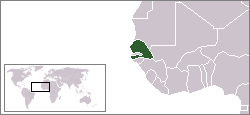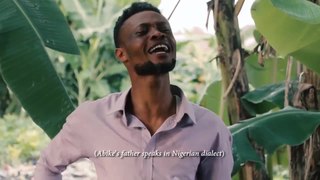
Azie Taylor Morton served as Treasurer of the United States during the Carter administration from September 12, 1977 to January 20, 1981. She remains the only African American to hold that office. Her signature was printed on US currency during her tenure, an honor that she shared with four African-American men.

Child marriage is a formal marriage or an informal union entered into by an individual before reaching a certain age, specified by several global organizations such as UNICEF as minors under the age of 18. The legally prescribed marriageable age in some jurisdictions is below 18 years, especially in the case of girls; and even when the age is set at 18 years, many jurisdictions permit earlier marriage with parental consent or in special circumstances, such as teenage pregnancy. In certain countries, even when the legal marriage age is 18, cultural traditions take priority over legislative law. Child marriage violates the rights of children; it affects both boys and girls, but it is more common among girls. Child marriage has widespread and long term consequences for child brides and grooms. According to several UN agencies, comprehensive sexuality education can prevent such a phenomenon.

Abdou Diouf is a Senegalese politician who was the second President of Senegal from 1981 to 2000. Diouf is notable both for coming to power by peaceful succession, and leaving willingly after losing the 2000 presidential election to Abdoulaye Wade. He was also the second Secretary-General of the Organisation internationale de la Francophonie from January 2003 to December 2014.

Aliou Cissé is a Senegalese football coach and former player. Having begun his career in France, he later played for English clubs Birmingham City and Portsmouth. Cissé was a defensive midfielder who also, on occasion, played at centre back.

The Senegal national football team, nicknamed the Lions of Teranga, is the national association football team of Senegal and is controlled by the Senegalese Football Federation.

Bruno Metsu was a French footballer and football manager. During his senior playing career from 1973 to 1987, he played for seven different clubs in his native France. From 1988 until his death, he was the manager of a total of nine clubs in France and the Arab states of the Persian Gulf, the Guinea, Senegal, United Arab Emirates and Qatar national football teams. He was perhaps most famous for coaching Senegal to the quarter-finals of the 2002 FIFA World Cup, including a surprise victory over defending champions France in the opening match of the tournament.
The Association des Scouts et Guides du Sénégal is one of Senegal's Scouting and Guiding organizations. Its Scout section is member of the World Organization of the Scout Movement via the Confédération Sénégalaise du Scoutisme. The Guide section is a direct and full member of the World Association of Girl Guides and Girl Scouts since 1981.

The Scout and Guide movement in Senegal is served by

Black Girl is a 1966 French-Senegalese film by writer/director Ousmane Sembène, starring Mbissine Thérèse Diop. Its original French title is La noire de…[la nwaʁ də], which means "The black girl/woman of…", as in "someone's black girl", or "black girl from…". The film centers on Diouana, a young Senegalese woman, who moves from Dakar, Senegal to Antibes, France to work for a rich French couple. In France, Diouana hopes to continue her former nanny job and anticipates a cosmopolitan lifestyle. But from her arrival in Antibes, Diouana experiences harsh treatment from the couple, who force her to work as a servant. She becomes increasingly aware of her constrained and alienated situation and starts to question her life in France. This was the director's first feature-length film. It is often considered the first Sub-Saharan African film by an African filmmaker to receive international attention.

The coat of arms of Senegal is the heraldic device consisting of a shield charged with a lion on the left half and a baobab tree on the right, flanked by palm branches and topped with a five-pointed green star at the top.

Lesbian, gay, bisexual, and transgender (LGBT) persons in Senegal face legal challenges not experienced by non-LGBT residents. Senegal specifically outlaws same-sex sexual acts and, in the past, has prosecuted men accused of homosexuality. LGBT persons face routine discrimination in society.

Senegal–United States relations are bilateral relations between Senegal and the United States.
Senegal is a source, transit, and destination country for children and women trafficked for the purposes of forced labor and commercial sexual exploitation. Trafficking within the country is more prevalent than trans-border trafficking and the majority of victims are children. Within Senegal, religious teachers traffic boys, called talibe, by promising to educate them, but subjecting them instead to forced begging and physical abuse. A 2007 study done by UNICEF, the ILO, and the World Bank found that 6,480 talibe were forced to beg in Dakar alone. Women and girls are trafficked for domestic servitude and sexual exploitation, including for sex tourism, within Senegal. Transnationally, boys are trafficked to Senegal from The Gambia, Mali, Guinea-Bissau, and Guinea for forced begging by religious teachers. Senegalese women and girls are trafficked to neighboring countries, the Middle East, and Europe for domestic servitude and possibly for sexual exploitation. Women and girls from other West African countries, particularly Liberia, Ghana, Sierra Leone, and Nigeria may be trafficked to Senegal for sexual exploitation, including for sex tourism.
The Serer religion, or a ƭat Roog, is the original religious beliefs, practices, and teachings of the Serer people of Senegal in West Africa. The Serer religion believes in a universal supreme deity called Roog. In the Cangin languages, Roog is referred to as Koox, Kopé Tiatie Cac, Kokh Kox, etc.
The Saafi people, also called Serer-Safene, Safene, etc., are an ethnic group found in Senegal. Ethnically, they are part of the Serer people but do not speak the Serer language nor a dialect of it. Their language Saafi is classed as one of the Cangin languages. In Senegal, they occupy Dakar and the Thies Region.

The Ndut is a rite of passage as well as a religious education commanded by Serer religion that every Serer must go through once in their lifetime. The Serer people being an ethnoreligious group, the Ndut initiation rite is also linked to Serer culture. From the moment a Serer child is born, education plays a pivotal role throughout their life cycle. The ndut is one of these phases of their life cycle. In Serer society, education lasts a lifetime, from infancy to old age.

Senegal competed at the 2014 Summer Youth Olympics, in Nanjing, China from 16 August to 28 August 2014.

Child Marriage in Nigeria. In 2017 in Nigeria, 43% of girls are married off before the age of 18. 17% are married before they turn 15. Nigeria is the 11th highest nation in the world for number of child marriages.
Senegal's typically patriarchal society dictates that women traditionally take care of the household duties such as cooking, cleaning, gathering water and firewood, and caring for children. and that men are in charge of the house. In Senegal, women have the same legal rights as men. However, it is still the case today that women are disadvantaged in many respects.














